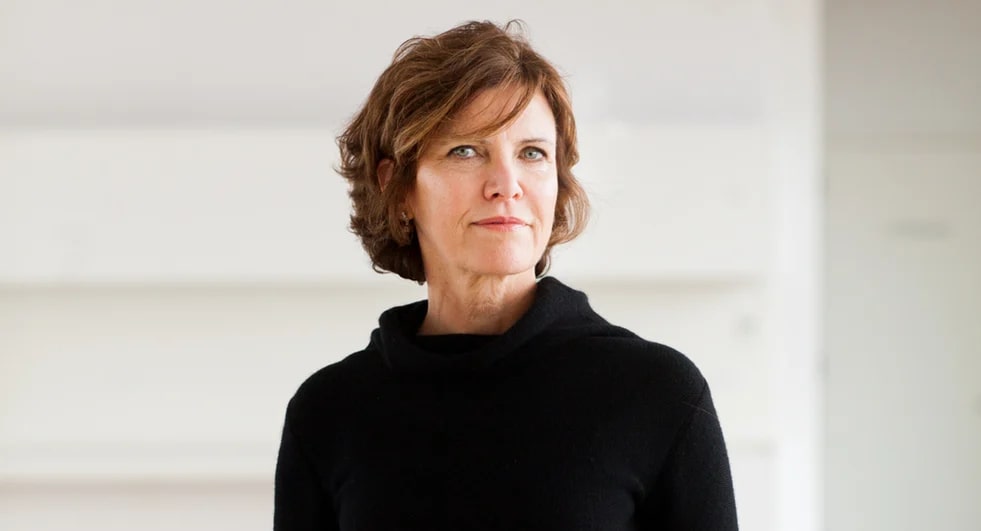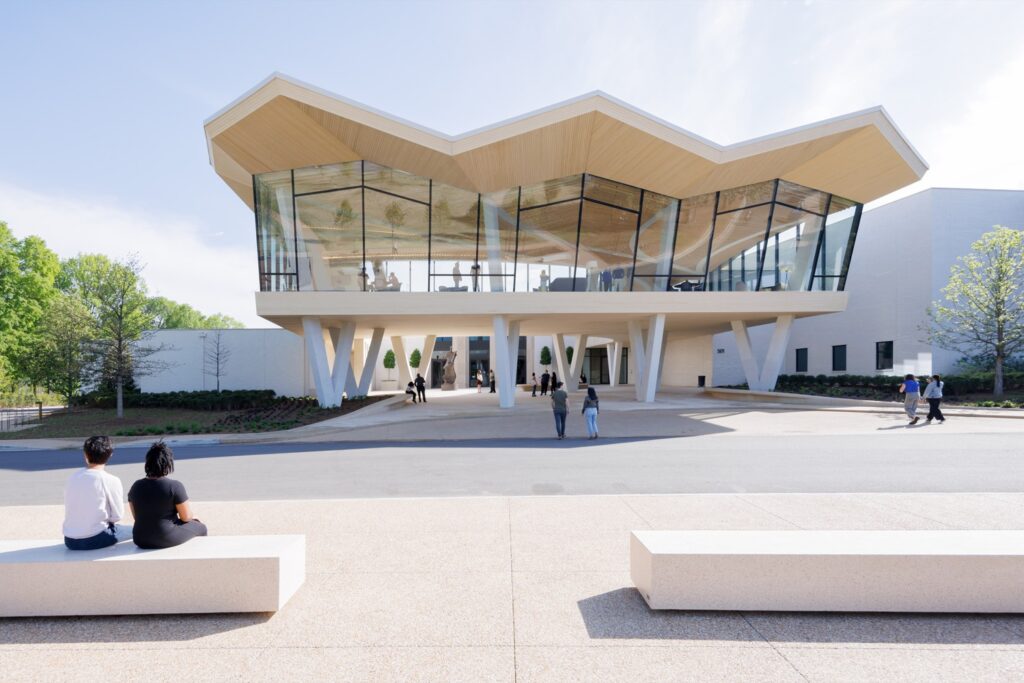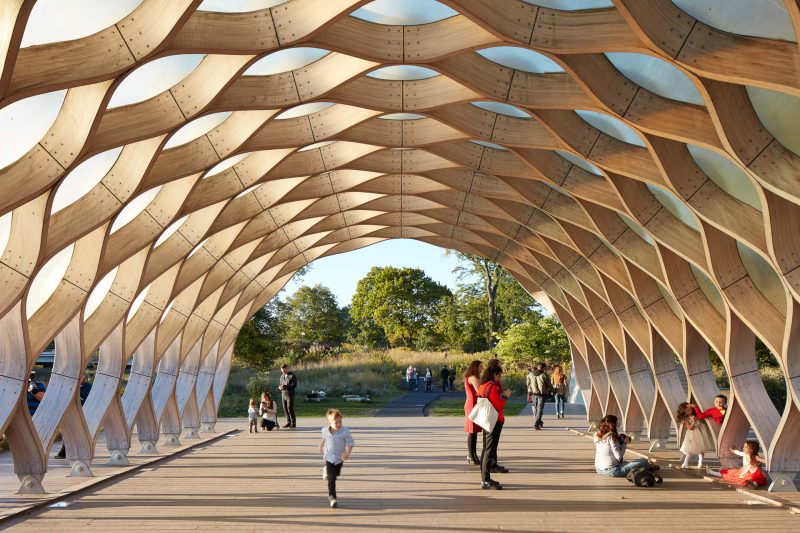Unlock Premium, Members-Only Content
Your source for the most relevant updates in sustainable construction
Introduction to Jeanne Gang
Jeanne Gang isn’t just an architect; she’s a force of nature in a field that shapes how we live, work, and interact. Born on March 19, 1964, in Belvidere, Illinois, Gang has carved a niche for herself in the world of architecture with her bold designs and an unyielding commitment to sustainability. Her work is not merely about creating spaces; it’s about creating conversations between the environment and its inhabitants.
Gang’s journey into architecture began at the University of Illinois, followed by a significant stint at the Harvard Graduate School of Design. What sets her apart is not just her educational background but her visionary approach to integrating ecological sustainability into urban landscapes. Each of her projects tells a story of balance and innovation, pushing the boundaries of traditional architecture.
Jeanne Gang: Foundational Influences and Education

Early Influences
From a young age, Gang was fascinated by the interaction between natural spaces and human-made structures. This curiosity was fueled by her surroundings in Illinois—a place marked by its varied landscape and architectural diversity. Her early exposure to the blend of urban and rural settings laid the groundwork for her future in architecture.
Educational Pathway
Jeanne Gang’s academic journey is as impressive as her professional one. With a Bachelor’s degree from the University of Illinois and a Master’s from Harvard University, she not only gathered knowledge but also absorbed diverse perspectives that later influenced her unique architectural style.
Academic Milestones:
- Bachelor’s Degree, Architecture: University of Illinois, Urbana-Champaign.
- Master’s Degree, Architecture: Harvard University.
- Rotary Foundation Ambassadorial Scholar: Studied urban design at the Swiss Federal Institute of Technology (ETH) in Zurich.
This educational mix of local insights and global experiences equipped Gang to challenge conventional architectural norms and strive for innovation in every project. Her study under the mentorship of prominent architects during her time at Harvard and ETH Zurich instilled in her a deep appreciation for sustainable and responsive design, which has become a hallmark of her work.
Jeanne Gang’s narrative is not just about buildings; it’s about building a future where architecture respects and responds to the needs of society and the environment. As we delve deeper into her professional life and signature projects, it becomes clear that she is not just constructing spaces but is sculpting the future of urban living.
Studio Gang: Vision and Mission
Jeanne Gang founded Studio Gang, an architectural and urban design practice based in Chicago, with a vision that transcends the mere construction of physical structures. At the heart of Studio Gang’s philosophy lies a deep commitment to enhancing human interactions within ecological boundaries, thereby fostering a sense of community and environmental responsibility.
Core Philosophies:
- Interconnectivity: A belief in the power of design to connect people to each other and to their environments.
- Innovation: A continuous quest for new ways to integrate sustainable practices into modern architecture.
- Community Impact: Designing spaces that not only serve but enhance communities.
Studio Gang’s mission is evident in every project, aiming not just to build, but to build better, more sustainable, and more inclusive environments. The firm’s work consistently reflects a unique blend of artistic vision and practical functionality, pushing the envelope on what architecture can achieve in terms of both aesthetics and sustainability.
Jeanne Gang: Signature Projects and Architectural Style
Jeanne Gang’s approach is best illustrated through her signature projects, each embodying her ideals of sustainability, community, and innovation. These structures are not only functional but are designed with an acute sensitivity to their environmental and social contexts.
Aqua Tower, Chicago
One of Gang’s most famous works, the Aqua Tower, features a striking outdoor terrace that flows like waves, mimicking the fluidity of water. This design not only enhances the visual dynamics of the building but also serves practical purposes, such as minimizing wind pressure and maximizing solar shading.
St. Regis Chicago
Previously known as Vista Tower, this skyscraper stands out with its crystalline form. The design was inspired by the geological formations of fluorite, showcasing Gang’s ability to draw inspiration from nature and transform it into urban sculptures.
Arkansas Museum of Fine Arts

This project highlights Gang’s commitment to cultural enrichment through architecture. The redesign focuses on transparency and fluidity, inviting public interaction and making art more accessible to the community.
Design Philosophy Table:
| Project | Inspired By | Design Focus | Community Impact |
|---|---|---|---|
| Aqua Tower | Water dynamics | Wind minimization & solar shading | Enhances urban skyline |
| St. Regis Chicago | Fluorite crystals | Structural innovation | Iconic city landmark |
| Arkansas Museum of Fine Arts | Natural light & landscapes | Public accessibility | Cultural community hub |
These projects demonstrate how Jeanne Gang’s architectural vision is deeply intertwined with a respect for nature and a commitment to community welfare, setting her apart as a leader in sustainable urban design.
Jeanne Gang: Sustainability and Ecological Focus
Jeanne Gang and Studio Gang are renowned not just for their architectural aesthetics but significantly for their pioneering efforts in sustainable architecture. Each of their projects showcases a deep commitment to environmental stewardship, aiming to mitigate urban impacts on nature while enhancing the quality of life for urban residents.
Sustainable Design Techniques:
- Recycled Materials: Utilizing recycled and sustainable materials to reduce environmental footprints.
- Natural Solutions: Incorporating natural elements for energy efficiency, such as green roofs and rain gardens.
- Community Engagement: Designing spaces that promote ecological awareness and community participation.
Jeanne Gang: Notable Sustainable Projects
- Nature Boardwalk at Lincoln Park Zoo:

- This project transformed a dilapidated pond into a thriving habitat for wildlife and a stormwater management system. The boardwalk encourages community interaction with nature and educates visitors on ecological biodiversity.
- Solar Carve Tower:
- Strategically designed to harness sunlight for neighboring buildings, this project exemplifies how urban structures can coexist with natural light without casting extensive shadows.
These projects illustrate Gang’s innovative approach to using architecture as a tool for environmental enhancement, not just in Chicago but globally, setting new standards for sustainable urban development.
Jeanne Gang: Community and Urban Impact
Jeanne Gang’s vision extends beyond buildings to shaping entire urban landscapes that foster community interaction and cultural connectivity. Her projects often serve as catalysts for urban revitalization, demonstrating that architecture can be a profound force for social change.
Community-Focused Projects:
- Polk Bros Park: Transformed the entrance of Navy Pier in Chicago into a vibrant, green public space that offers year-round cultural activities.
- Civic Commons: Aims to revitalize urban areas by transforming public spaces into beautiful, functional areas that strengthen local communities.
Impact on Urban Development
Each of Jeanne Gang’s projects is designed with the surrounding community in mind, ensuring that these structures contribute positively to the urban fabric. Her work often includes public spaces that are not only accessible but also enriching, promoting social interactions and a sense of community belonging.
- Cultural Influence: Projects like the Arkansas Museum of Fine Arts not only provide cultural services but also act as hubs for community gathering and interaction.
- Economic Impact: By revitalizing areas and creating iconic buildings, Gang’s projects frequently lead to increased economic activity and enhanced property values in the areas they inhabit.
Through these endeavors, Jeanne Gang demonstrates a clear vision of how architecture can play a crucial role in community building and urban development, emphasizing the potential of thoughtful design to create spaces that are both functional and nurturing for the communities they serve.
Awards and Recognitions
Jeanne Gang’s innovative approach and commitment to sustainability and community enhancement have earned her and Studio Gang numerous accolades, highlighting her influence and leadership in the architectural realm. These awards not only recognize her professional achievements but also underscore her role as a trailblazer for future generations in the field of architecture.
Select Awards and Honors:
- MacArthur Fellowship: Often referred to as the “genius grant,” this prestigious award recognized Gang for her creative work in architecture that interweaves design with social and environmental sustainability.
- Charlotte Perriand Award: This award commemorates Gang’s impact on improving quality of life through thoughtful design and dedication to sustainability, placing her alongside some of the most respected figures in the architectural community.
Jeanne Gang: Global Recognition
Her work has not only been lauded in the United States but has also received international acclaim, reflecting the global relevance of her design philosophy.
- Time Magazine’s 100 Most Influential People: In 2019, Gang was listed among the world’s most influential people, a testament to the far-reaching impact of her work on global architecture and urban development.
- Royal Architectural Institute of Canada International Prize: Awarded for her innovative approaches to tower design, which blend architectural beauty with environmental ethics.
These accolades reflect a career built on the foundation of innovative design and community-focused projects, setting a benchmark for future architects around the world.
Future of Architecture: Jeanne Gang’s Vision
Jeanne Gang’s perspective on the future of architecture is both innovative and inspiring. She envisions a world where buildings not only exist within their environments but actively contribute to them, fostering ecological sustainability and community well-being. Her forward-thinking approach seeks to redefine urban landscapes into more adaptive and responsive spaces.
Innovative Concepts for Future Projects:
- Dynamic Buildings: Gang advocates for structures that adapt to their environment, changing in response to climatic conditions to optimize energy use and enhance comfort.
- Integrated Ecosystems: Emphasizing designs that support biodiversity, Gang’s future projects aim to integrate natural habitats into urban settings.
Jeanne Gang: Pushing Boundaries in Architectural Design
Gang’s vision includes harnessing the latest in technology and sustainable practices to push the boundaries of what architecture can achieve. From utilizing biodegradable materials to integrating smart technology that responds to user needs, her approach combines aesthetics with functionality in a way that serves both people and the planet.
- Sustainable Urban Planning: Gang promotes a holistic view of urban development that includes not just buildings, but also the spaces between them, focusing on how public spaces can be designed to foster community and environmental health.
- Technological Integration: Utilizing advancements in AI and machine learning to create smarter, more adaptive building systems.
Through her visionary ideas, Jeanne Gang aims to lead a new era of architectural design that emphasizes environmental stewardship and social connectivity.
Conclusion: Jeanne Gang’s Legacy and Influence
Jeanne Gang’s legacy in architecture extends beyond her buildings. It’s woven into the impact she has on communities, the environment, and the architectural profession itself. As an architect, educator, and leader, her work resonates with a profound understanding of architecture’s role in shaping better futures.
Impact on the Architectural Community:
- Inspiring Future Generations: Gang’s commitment to sustainability and innovation serves as a model for future architects. Her work encourages others in the field to think creatively about how buildings interact with their environments.
- Advocacy for Diversity and Inclusion: By breaking barriers in a male-dominated field, Gang has paved the way for more inclusive practices in architecture, inspiring women and underrepresented groups to pursue careers in this dynamic field.
Reflecting on Jeanne Gang´s Contributions to Architecture
Jeanne Gang’s influence is evident in the way she rethinks urban spaces, advocating for buildings that are not only beautiful but also beneficial to ecological and social frameworks. Her commitment to blending artistic integrity with environmental ethics has set new standards in the field, making her one of the most respected and visionary architects of her time.
- Global Influence: From the United States to global projects, Gang’s architectural philosophy promotes a deeper connection between people and the places they inhabit.
- Legacy of Innovation: Her legacy will be defined by her ability to challenge and inspire the architectural community to build with more than just function in mind, but with a vision toward sustainability and community enhancement.
Jeanne Gang’s work and philosophy exemplify how architecture can transcend traditional boundaries, creating spaces that are not only functional and beautiful but also transformative for individuals and communities alike.
If you want to learn about our consultancies in Portuguese language, click here.
Unlock Premium, Members-Only Content
Your source for the most relevant updates in sustainable construction